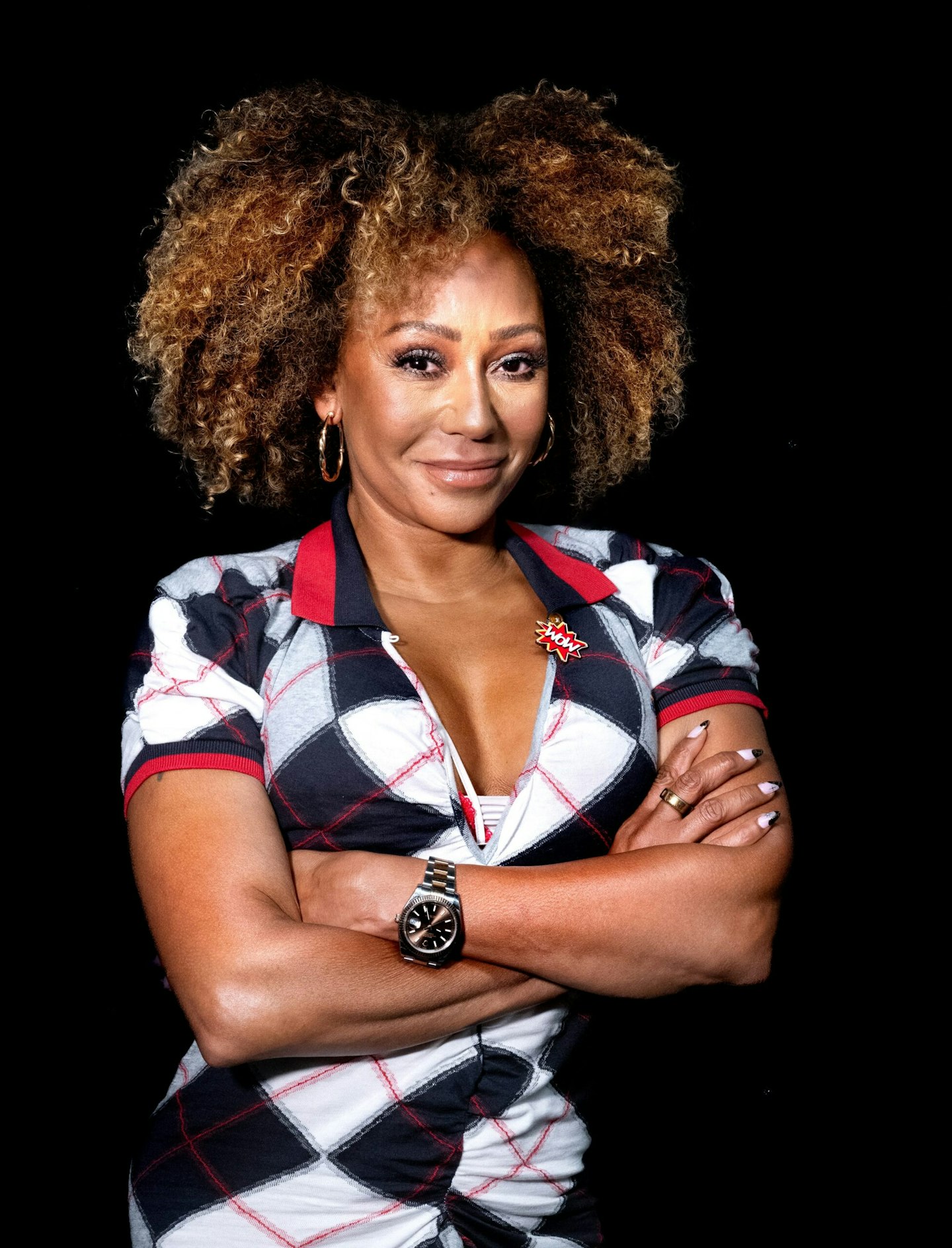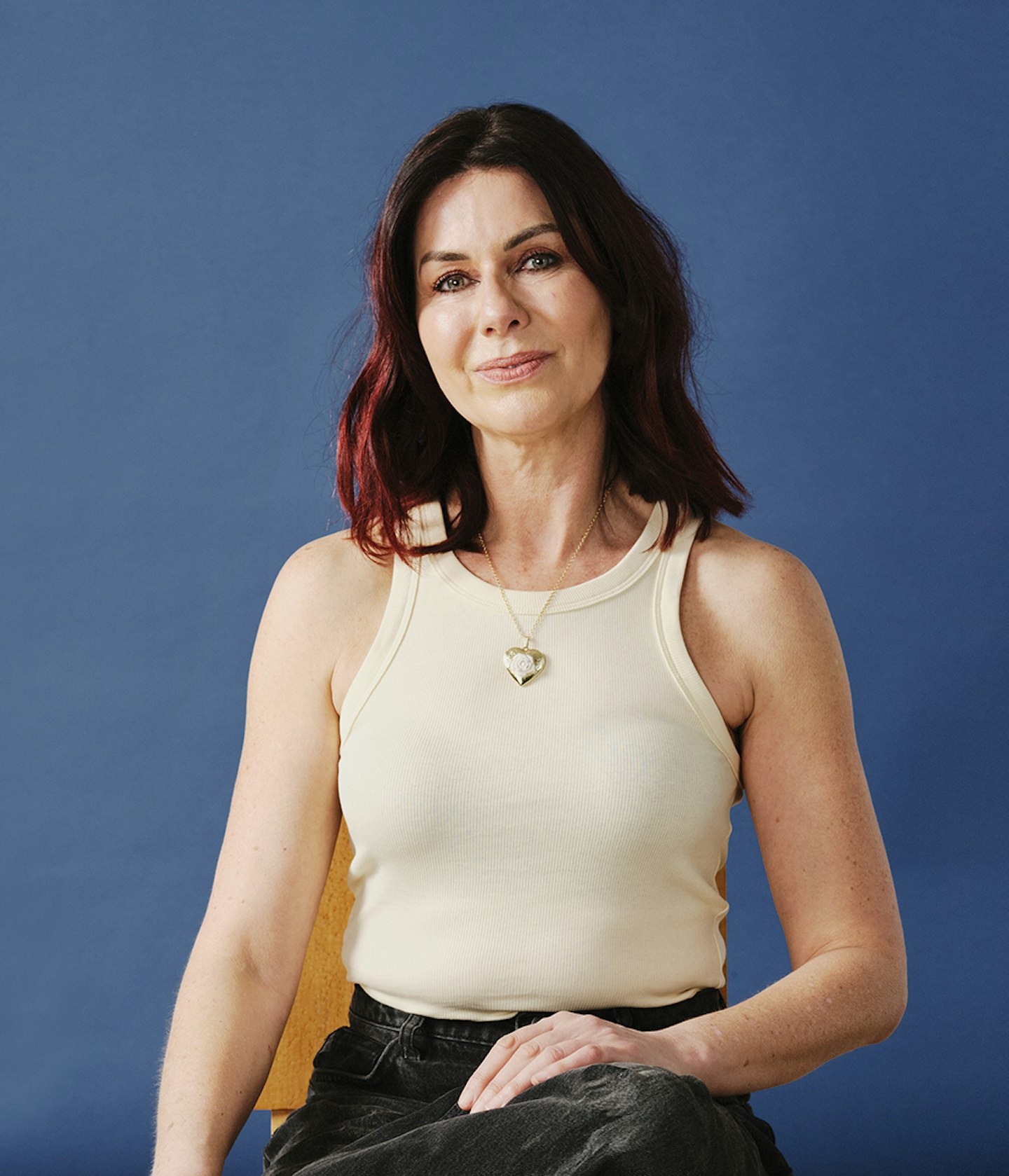It's officially election week - in just four days we'll be heading out to the polls to cast our vote. Right now, Labour is predicted to win a majority 40% of the vote, while the Conservatives trail behind at 20% and Reform slides into third place with 16%. But after a seemingly endless run of debates and so much election noise, it can feel overwhelming making an informed decision. So, that's why we went to the two main party leaders, Rishi Sunak and Keir Starmer, to ask them the biggest questions that will help you decide where to cast your vote on July 4th.
With a range of questions from activists like Nimco Ali and Juno Dawson to celebrities like Joe Lycett and Mel B, here's how the party leaders responded...
Nimco Ali - Activist: Do you consider yourself pro-choice? And if so would you decriminalise abortion?

Rishi Sunak: This is an incredibly emotive issue, which is why there has long been a convention for Parliament to decide whether to make any changes to the law. It has always been treated as an individual matter of conscience so it wouldn’t be right for me to be seen to influence others by expressing a personal view.
Keir Starmer: Abortion is an essential part of healthcare and I am pro choice. If we get into Government we’ll provide Parliamentary time for free votes on modernising abortion law to ensure women do not go to jail for getting an abortion at a vulnerable time. Of course, there needs to be safeguards and time limits, but my view is that women should not be subjected to custodial sanctions for accessing health care.
Joeli Brearley - Founder of Pregnant Then Screwed: We know there are 1.45 million women out of paid work due to caring commitments. What will your party do to ensure mothers are enabled to have both children and a career should they wish to do so?

Rishi Sunak: We absolutely need to do more to support parents when it comes to childcare. That’s why we are rolling out 30 hours free childcare a week from nine months to when children start school, saving working families an average of £6,900 a year. It’s set to help around 60,000 parents back into work and 1.5 million mothers already in work to increase their hours. And we will reform Child Benefit to end the single earner penalty so that all households will be able to earn up to £120,000 without losing out, a tax cut worth on average £1,500 for 700,000 families.
Kier Starmer: I’ve heard the frustration from countless mothers who feel locked out of the workplace because it costs too much to get childcare. That can’t be right and it’s got to change. Our plan for early years is to deliver 100,000 new nursery places using space in primary schools. That will give kids a safe environment to develop before they arrive at school and help parents back into the workplace or let them expand their hours. For primary school age children, we’ll offer breakfast clubs in schools.
Kay Burley - chief presenter and host of Election Night Live, Sky News: When you're finally home after a hard day on the road and you think "I've had enough of politics!", what does your wife say to make you think, "OK, I'm ready for another day on the campaign trail tomorrow!"?

Rishi Sunak: I’m very lucky to have such a supportive, loving family. They allow me to escape the pressures of the job for a few precious hours each week and they help me recharge my batteries. My wife learnt a great philosophy from her father, which is that ‘the softest pillow is a clear conscience’. I think that’s so true which is why I focus each day on doing what I think is the right thing for our country.
Keir Starmer: When I walk through my door at the end of the day I’m not Leader of the Opposition, I’m Dad. I leave work behind and hear about their day. My children don’t care what I do for a living and it really keeps me grounded and helps me to switch off from the campaign briefly. Once the kids have gone to bed I can talk to Vic about her day – she works for the NHS, so I have a direct line into what’s happening on the front line of our biggest public service. She tells me how hard things are, but also about her brilliant colleagues, who every day make people’s lives better. It spurs me on to fix it.
Miriam Gonzalez Durantez - Lawyer and Charity Founder: Women in the UK spend almost 21 hours per week (twice the amount as men) on unpaid care and domestic work - what policy proposals are you putting forward to recognise the value of that work and help correct this unbalance?

Rishi Sunak: I hugely value the work that unpaid carers do. We have increased the value of Carer’s Allowance by £1,500 since 2010 and we have introduced a new entitlement to a week of unpaid leave for those with caring responsibilities. We commissioned a new survey of unpaid carers to improve our understanding of their experiences and what support works for them, and the Better Care Fund includes more than £300m of funding for carers’ support such as short breaks and respite services.
Keir Starmer: The strain on people – often working women – balancing caring responsibilities and work has become completely untenable. Vic and I have had to juggle conflicting priorities over the years: young kids, parents in ill-health, work. Our plan to Make Work Pay will provide a baseline set of familyfriendly rights, meaning that working people can enjoy a better work-life balance. We’ll be reviewing carefully long overdue carers’ leave entitlements that came in this spring.
Joe Lycett - Comedian: Do you think power corrupts?

Rishi Sunak: Dharma is one of the key principles of Hinduism – it translates most closely as ‘duty’. Faith is an important part of my life and I find it useful in politics to have a very clear set of principles and convictions that I stick to. Duty is something I learnt from my parents too who served their community as a GP and pharmacist and inspired me.
Keir Starmer: There’s no wonder people feel like this, but I disagree. From partygate to the brazen sleaze and scandal we’ve all witnessed – the Tories have served their self-interest and made a complete mockery of the responsibility and privilege it is to serve. But there remain brilliant colleagues in politics who work hard every day for those they represent, we cannot let people ever forget that. We need to restore faith in Government. We would ban MPs from taking up paid advisory roles while serving and create a new ethics watchdog with real power to investigate misconduct by Ministers.
Juno Dawson - Author, Activist and Screenwriter: Why have the rights of transgender women and women, less than 0.5% of the UK population, become such a toxic political issue? Are so-called "culture wars" a distraction from political failings?

Rishi Sunak: We are proud to have some of the strongest laws to tackle discrimination and harassment against those with protected characteristics, including sexual orientation and gender reassignment. But it is also vitally important that we have protections in place for women and girls, including providing access to single-sex spaces because biological sex is an important reality. This is something the vast majority of people agree with and we need to be able to have an honest, open conversation on this topic.
Keir Starmer: Good government and good politics should be about bringing people together. The vast majority of people across this country are reasonable and tolerant. I’ve met thousands of people since I became an MP, and I think they are exhausted by the culture wars, when everyone’s instinct is much more ‘live and let live’. My changed Labour Party will reject the politics of division and bring people together.
Caitlin Moran - Journalist and Author: Right now, would this country's economy be stronger if we hadn't had Brexit?

Rishi Sunak: No. Thanks to Brexit we have struck free trade deals with over 70 countries and have joined a trading block with some of the fastest growing economies in the world thanks to the Transpacific Partnership. We have removed cumbersome regulation to unlock sectors such as life sciences and our reforms to the insurance sector is poised to unlock over £100 billion of investment. We are growing at 0.6% and are forecast to grow faster than France, Germany, Italy, Japan over the next six years.
Keir Starmer: It’s no secret that I campaigned for Remain, but leaving the EU was the decision of the British people. That’s not to say that the deal Boris Johnson negotiated can’t be made to work better for our economy. It was a botched deal, and businesses in particular tell me that daily. We will improve our relationship with the EU to support economic growth. This does not mean a return to the single market, customs union, nor a return of freedom of movement. The problems in our economy are the result of 14 years of chaos that have trapped us in this high tax and low growth cycle. We have to break out of this and rebuild our economy.
Melanie Brown MBE - Campaigner and Former Spice Girl: You've both talked about ending violence against women, but can you tell me how domestic abuse will be one of your priorities if you win the General Election?

Rishi Sunak: Domestic Abuse is a horrifying crime and, particularly as a father of two daughters, protecting women and girls has always been at the forefront of my mind as Chancellor and Prime Minister. In 2021, we passed the landmark Domestic Abuse Act to introduce new offences for controlling or coercive behaviour. And we will go further to make murder involving sexual or sadistic conduct subject to whole life orders and introduce a new tough 25-year sentence for domestic homicide.
Keir Starmer: Time and again I’ve seen the system has failed so many women, that is why I have made it a central mission of any future Government I lead to halve instances of violence against women and girls. We have to start by tackling the root cause of abuse, by identifying patterns of abuse earlier, and equipping young men through school to go into the world respectful of women, and understanding of the impact of their behaviours. We’ll put specialist rape and sexual abuse units in every police force and will include a dedicated domestic abuse worker in every 999 control room. Secondly, we need to stop the prolonged, harrowing process that victims are enduring as they seek justice. To address the courts backlog, Labour will ensure more prosecutors are available. We’ll make sure courts have staff to advise victims on their right to support.
Bryony Gordon - Journalist and Campaigner: Are you planning to walk the walk when it comes to improving mental health provision, or will you just talk the talk? (I’m thinking about the 2019 Conservative manifesto pledge to reform the Mental Health Act, which the party never actually actioned and put through despite it all being ready to go.) I am tired of politicians using mental health to win votes.

Rishi Sunak: I’m proud of having delivered the largest ever expansion of mental health services in the last Parliament, which has meant that 1.2 million people a year can now access talking therapies and 700,000 more people who need more specialist services can access them. Half of all schools will be covered by mental health support teams by next year. We know there is more to do, which is why we’re promising to expand coverage to 100% of all schools and boost access to talking therapies by 500,000 more. We will invest in training more mental health staff through our NHS Long Term Workforce Plan.
Keir Starmer: Absolutely, this is a huge problem. 120,000 children had to wait six months or more for mental health support in 2022-23. It’s a disgrace. We’ll train 8,500 new mental health staff, to bring down waiting lists. There will be an open access hub in every community for young people and support in every single school. We need to catch mental health issues and build resilience before problems become acute. And we will reform the Mental Health Act, a commitment we will make in our first King’s Speech, because we are serious about this change.
Laura Bates - Author and Campaigner: What will you do to tackle institutional misogyny and racism in policing?

Rishi Sunak: The majority of police officers act with the highest standards of professionalism, but recent cases of police misconduct and criminality have appalled the nation and eroded the public’s confidence. That’s why we are working with police chiefs to ensure that those who are not fit to serve do not enter policing. We are changing the law to ensure all officers are appropriately vetted during their service and we have introduced regulations to strengthen the police dismissal process.
Keir Starmer: The last few years have exposed a catalogue of appalling failures in police vetting and misconduct processes. I’ve seen the anguish communities have experienced with the law and I’m determined that any Government I lead doesn’t accept this as the norm. That means we’ve got to change how we recruit police. There has to be a gold standard in vetting potential new officers nationally. There will be automatic bans for any applicants with a history of domestic abuse, indecent exposure or sexual assault. No more excuses for bad officers.
Camille Perry and Holly Wright - Founders of British fashion line Tove: It is a challenging time for independent brands in the UK post-Brexit. It is estimated the removal of tax-free shopping is deterring 2 million tourists annually and international visitor spend has fallen in the UK and risen in European cities. Will you reinstate it in the UK?

Rishi Sunak: We took the difficult decision in 2022 not to proceed with a new VAT-free shopping scheme to ensure the UK’s economic stability and get debt falling. But we have taken bold action to back businesses, including a £13.6bn package of business rates support and with Full Expensing – the biggest tax cut for business in modern British history worth a total of £50bn. We have also increased the VAT registration threshold from £85,000 to £90,000 – making ours the highest threshold for pay VAT across the EU and the highest in the OECD alongside Switzerland.
Keir Starmer: You are absolutely right about the huge value that our fashion industry brings to the UK economy. It’s part of the fabric of our heritage. The economy is in the doldrums and the public finances are a mess. I won’t make promises I can’t keep, and so I can’t pledge to bring back tax-free shopping with the cost it brings. But giving British businesses the opportunity to thrive is the key to our mission of economic growth, the ends and means to rebuilding our country. We’ll breathe life back into our high streets, replace business rates and cut energy bills for good. We’ll introduce a new Industrial Strategy Council to make sure the voices of businesses are heard.
Terri White - Author and Journalist: I know the pain and shame of today’s 4.3m kids in poverty. Why won’t either of you commit to abolishing the two-child benefit cap, given it’s the single biggest driver INTO poverty and the single most cost-effective way OUT?

Rishi Sunak: Work is the best way out of poverty and since 2010, our welfare reforms have helped around four million more people move into work. We have brought child poverty down since 2010 and reduced the number of children living in workless households by around a third. On the two-child limit, I do think parents on Universal Credit should have to take the same decisions about how many children they can afford as full-time working parents do. Parents on Universal Credit who already had more than two children before the new rules came in did not have the cap applied.
Keir Starmer: The last Labour Government lifted more than half a million children out of poverty, which is why we’ve committed to an ambitious new cross Government strategy to tackle child poverty. We would have free breakfast clubs in every primary school, cutting fuel poverty and bringing down energy bills, banning exploitative zero hours contracts, making work pay, ending no fault evictions and creating more good jobs.
Sharmadean Reid - Entrepreneur: Having just moved back to my hometown of Wolverhampton, how will you ensure that the whole of the UK can get the support and budget to become hubs of creativity and entrepreneurship – and not just London?

Rishi Sunak: Wolverhampton has received £20 million in levelling up funding for the City Learning Quarter and £19.9 million for a green innovation corridor, building on Wolverhampton’s growth as a centre for sustainable construction and creating skilled jobs for local people in the emerging green economy. We have also allocated an additional £36 million a year funding to West Midlands Combined Authority over 30 years so that local people can take the decisions that best fit their area.
Keir Starmer: The failed ‘levelling up’ agenda has left regions more divided and regional inequalities widening. For the creative industries we’ve got a serious sector plan, getting both access to the arts and the business that comes with it, spread all over our country. We know that creativity is something Britain does so well, it’s where so much of our growth will come from, and that needs to be for everyone everywhere. Labour will work hand in hand with local leaders because those with skin in the game make the best decisions about the places they care about.
Hattie Brett - Grazia's Editor-in-chief: Would you support Grazia’s call for a sensitive conversation about maternal mental health to be mandatory in every pre and post-natal check-up?

Rishi Sunak: Yes. Too many women have suffered in silence without the support they need. That’s why we committed in our manifesto to develop a comprehensive national strategy for maternity care which will deliver improved access to mental health services and make sure that there are postnatal appointments dedicated to checking mums.
Keir Starmer: We are in the midst of the worst crisis in the NHS’s history, caused by the mismanagement of the service by the Conservatives. And it is women who are paying the price for these failures. With Labour, we’d ensure that trusts failing on maternity care are robustly supported into rapid improvement. We will train thousands more midwives as part of the NHS Workforce Plan and set an explicit target to close the Black and Asian maternal mortality gap. And we’ll recruit 8,500 more mental health staff.
Polly Vernon - Grazia Columnist: What personality traits does it take to make someone think they can run the country?

Rishi Sunak: My parents taught me the value of hard work. My grandparents came to this country with very little to their name and two generations later here I am as PM. It’s a story almost unique to Britain and one that if you work hard, if you integrate and embrace British values, you can do anything.
Keir Starmer: The most important thing you need to run a country is a commitment to service. You need a plan, and you need a strong team around you to deliver it. I came into politics later in life, after quite a long career as a lawyer. I realised that there was a limit to the change I could make, and how I could serve people that needed help, that’s why I came into politics. I didn’t grow up thinking I would be PM, but I spent my career reforming, improving and making life a little better for people. I have now been focused for four years in bringing my party back to the service of working people. What gives me the confidence that we can make this country better is the plan I’ve put forward, and the brilliant team I have around me.
